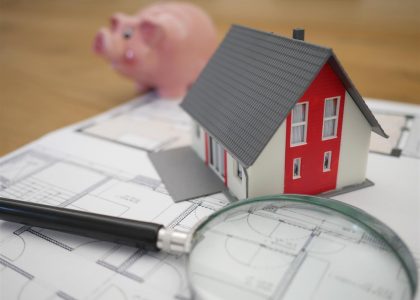Flipping houses has become an increasingly popular investment strategy for those looking to make a profit in the real estate market. However, many people wonder if it’s possible to get started with no money and bad credit. This article will explore the options available for aspiring house flippers who want to succeed despite these challenges. We’ll discuss the pros and cons of flipping houses and provide tips on how to find properties to flip.
What is House Flipping?
House flipping involves purchasing a property at a low price, renovating it, and then selling it at a higher price for a profit. This process can be quite lucrative, but it also comes with risks, such as unexpected repair costs and market fluctuations. Before diving into house flipping, it’s essential to understand the pros and cons.
Pros and Cons of Flipping Houses
Pros:
- Profit potential: Flipping houses can offer significant profit margins if done correctly.
- Learning opportunities: Flipping provides a chance to learn about real estate, construction, and project management.
- Creative outlet: Flippers can express their creativity through renovation and design projects.
Cons:
- Financial risk: House flipping can be risky, with unexpected costs and market fluctuations affecting profitability.
- Time-consuming: Managing a flip can be a full-time job, requiring a significant time commitment.
- Stressful: The pressure to sell and make a profit can be stressful, especially when dealing with unforeseen issues.
How to Flip Houses with No Money and Bad Credit
Despite the financial challenges, there are ways to get started in house flipping with no money and bad credit. Here are a few strategies:
- Partner with investors: Find partners or investors who can provide the necessary capital to purchase and renovate properties. In exchange, you’ll share the profits when the property is sold.
- Hard money loans: Hard money lenders offer short-term, high-interest loans based on the value of the property. These loans can be easier to obtain than traditional bank loans, but the high interest rates and fees can eat into your profits.
- Lease options: Negotiate a lease option agreement with the property owner, allowing you to lease the property with an option to buy it later. Use the lease period to make improvements and increase the property’s value, then exercise your option to buy and sell for a profit.
- Seller financing: Some property owners may be willing to provide financing for the purchase, with the buyer making payments directly to the seller. This arrangement can help you bypass traditional lenders and credit checks.
- Wholesaling: Instead of flipping houses directly, act as a middleman connecting sellers with potential buyers. Earn a commission on each deal without investing in the property yourself.
How to Find Houses to Flip
- Network with local real estate agents, contractors, and investors to discover potential deals.
- Use online resources and property listings to find foreclosures, short sales, and distressed properties.
- Attend real estate auctions and estate sales to find properties at discounted prices.
- Drive around neighborhoods looking for vacant or neglected properties that could be suitable for flipping.
Building a Successful House Flipping Team
Assembling a strong team is crucial for successful house flipping, especially when starting with no money and bad credit. Your team should include the following professionals:
- Real estate agent: A knowledgeable agent can help you find and evaluate potential properties and provide guidance on local market trends.
- Contractor: A reliable contractor will provide accurate estimates for renovation costs and complete the work on time and within budget.
- Attorney: A real estate attorney can assist with legal matters, such as drafting contracts and ensuring compliance with local regulations.
- Accountant: A skilled accountant can help you manage finances, track expenses, and optimize tax strategies.
- Home inspector: A thorough home inspector can identify potential issues with a property, allowing you to make informed decisions about your investment.
Managing Risks and Expectations
As a house flipper, it’s essential to manage risks and set realistic expectations for your projects. Here are some tips to minimize risks and ensure success:
- Conduct thorough research: Understand the local real estate market and neighborhood trends to ensure you’re making a wise investment.
- Budget for contingencies: Set aside a portion of your budget for unexpected expenses and overruns.
- Stick to a timeline: Develop a detailed project timeline and hold your team accountable for meeting deadlines.
- Focus on high-impact improvements: Prioritize renovations that will provide the best return on investment, such as updating kitchens and bathrooms.
- Price competitively: Work with your real estate agent to price your property competitively to attract buyers and maximize profits.
Expanding Your House Flipping Business
Once you’ve completed a few successful flips, you may want to expand your business and take on larger or more ambitious projects. Here are some strategies for growth:
- Diversify your portfolio: Consider investing in different types of properties, such as multi-family homes or commercial properties, to spread risk and maximize returns.
- Leverage your success: Use your track record and reputation to secure better financing terms or attract new investors.
- Network with industry professionals: Attend real estate conferences, seminars, and workshops to expand your network and learn about new strategies and market trends.
- Refine your systems and processes: Streamline your business operations and improve efficiency to increase profitability.
- Consider hiring employees or outsourcing tasks: As your business grows, you may need additional help managing projects, marketing properties, and handling administrative tasks.
In conclusion, it is possible to flip houses with no money and bad credit, but it requires creativity, persistence, and the willingness to learn from each experience. By exploring alternative financing options and leveraging your skills and network, you can succeed in the world of house flipping despite financial challenges.





